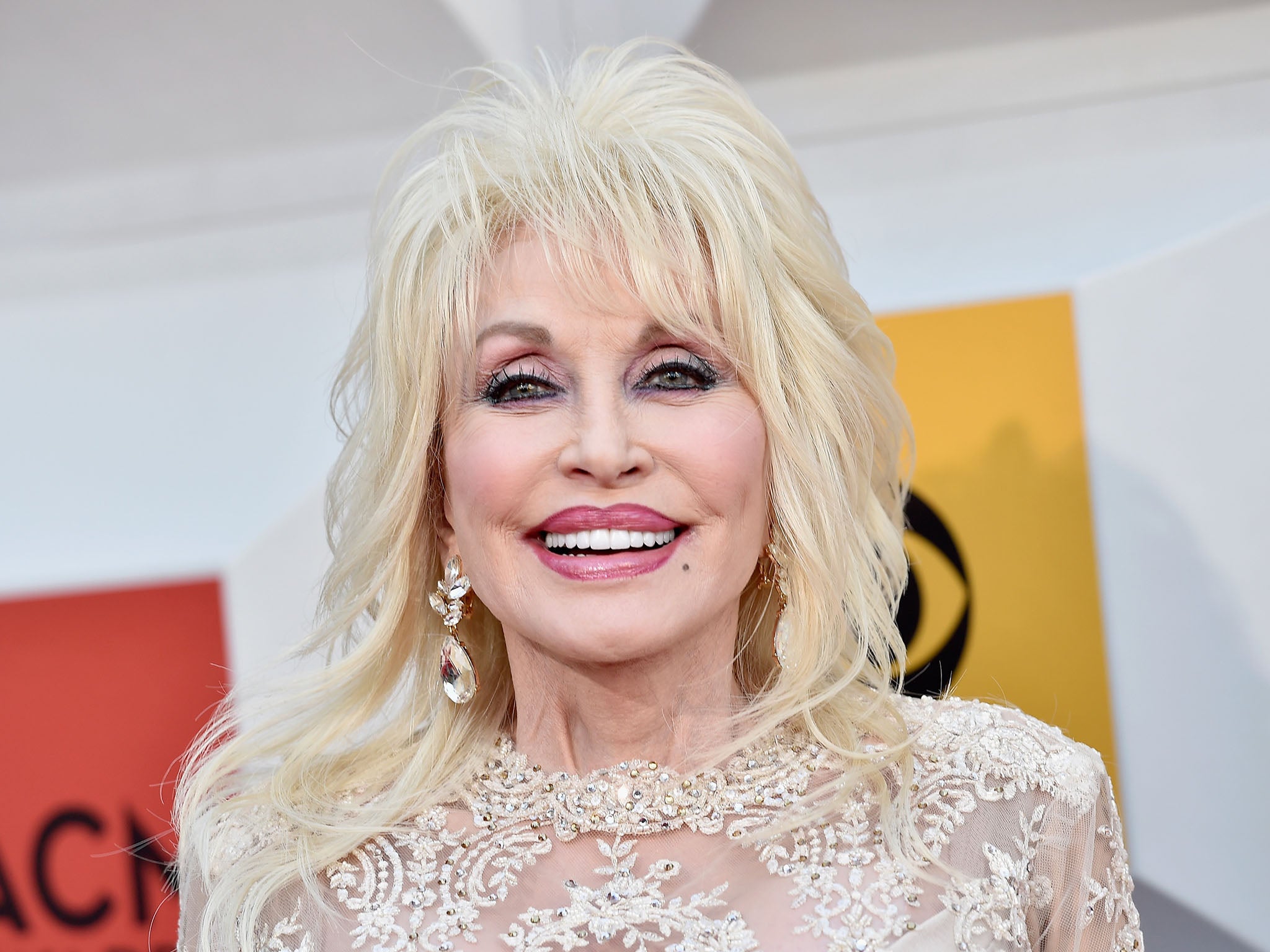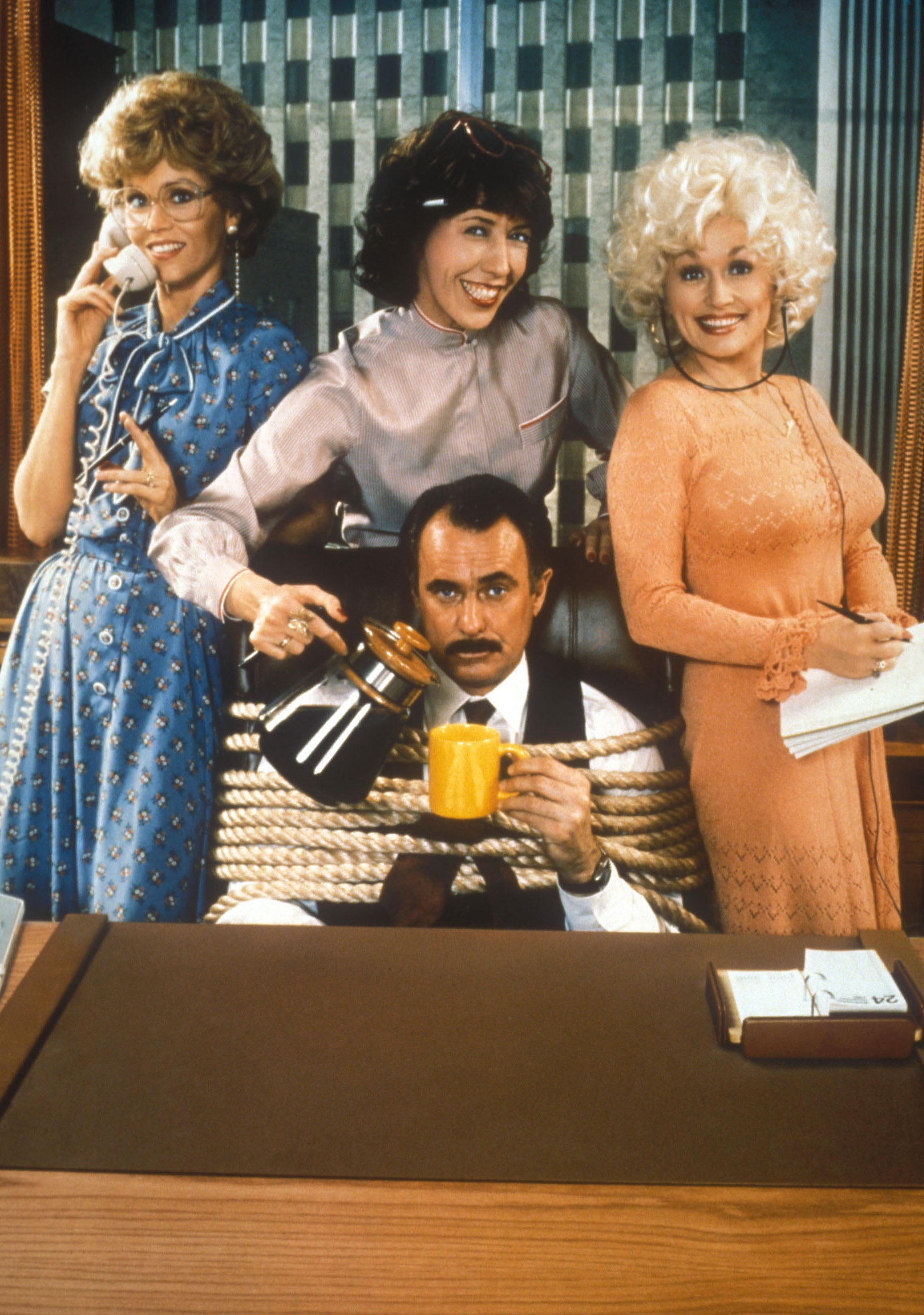Dolly Parton’s politics hide in plain sight, whether she admits it or not
There’s not much room for ambiguity in our times, as some Hollywood stars have found out, yet Parton’s philanthropy, which includes her funding of a Covid-19 vaccine, means she gets a free pass. But it’s easy to read between the lines, says Adam White


Your support helps us to tell the story
From reproductive rights to climate change to Big Tech, The Independent is on the ground when the story is developing. Whether it's investigating the financials of Elon Musk's pro-Trump PAC or producing our latest documentary, 'The A Word', which shines a light on the American women fighting for reproductive rights, we know how important it is to parse out the facts from the messaging.
At such a critical moment in US history, we need reporters on the ground. Your donation allows us to keep sending journalists to speak to both sides of the story.
The Independent is trusted by Americans across the entire political spectrum. And unlike many other quality news outlets, we choose not to lock Americans out of our reporting and analysis with paywalls. We believe quality journalism should be available to everyone, paid for by those who can afford it.
Your support makes all the difference.Dolly Parton probably isn’t Jesus, but the jury’s still out. She emerged from Tennessee’s Smoky Mountains wearing a coat of many colours, and through her songcraft and earnest sense of goodness, she has become a rare unifier among global chaos. Her lyrics, which burst with memories, traumas and wit, continue to touch those from every walk of life, Parton resonating with young and old and every colour and creed. Her philanthropy has helped teach children to read, and funded Covid-19 vaccines. At the same time, Parton has sat on the fence politically, refusing to align with nor condemn any particular ideology or US president, while insisting that it’s the key to her longevity. It’s a bit more complex than that.
Many have tried and failed to get Parton to open up about her political leanings over the years. It’s a game only made trickier by her skills at deflection, whether by deploying a canny topic pivot or, more commonly, a joke about her breasts. “I don’t do politics,” she told the acclaimed biographical podcast Dolly Parton’s America in 2019. “I have too many fans on both sides of the fence. Of course, I have my opinion, but I learned years ago to keep my mouth shut about things.”
It’s not just an increasingly polarised electorate that’s inspired all those questions, though. Parton is a hodgepodge of left-wing and right-wing signifiers, a red state icon who refused to critique Donald Trump, and who also happens to express love and adoration for every gender, sexuality and colour imaginable. Dolly Parton’s Christmas on the Square, her new Netflix film, is a testament to her occasionally jarring bipartisanship. It is thick with God-fearing spirituality and occasionally creepy nostalgia for small town Americana, but it is also hyper-queer in execution – think It’s a Wonderful Life if directed by Divine. Parton appears early on as a heavily made-up bag lady carrying a box of change and her rags fashioned into a glamorous shawl, while the film casts veritable gay icon Christine Baranski as an immaculately coiffed festive grinch. Enough said.
That kind of shapeshifting, or Parton’s ability to be exactly what you want her to be, depending on the angle, is why she is as beloved as she is. It’s also why she provokes such confusion. In Dolly Parton’s America, host Jad Abumrad repeatedly questioned Parton’s limp stances on feminism and right-wing boogeymen. He recalled her visible discomfort at a joke made at Trump’s expense at the 2017 Emmys, in which her Nine to Five co-stars Jane Fonda and Lily Tomlin repurposed a line from the film to condemn the then-president. Parton, on stage with the pair, pointedly stayed quiet, then made a quip about her boobs. In another episode of the podcast, Parton bristled when asked if she identified as a feminist. “I don’t believe in crucifying a whole group just because a few people have made mistakes,” she told Abumbrad. “The word ‘feminist’ is like ‘I hate all men’.”
The way Parton tells it is that, first and foremost, she is a businesswoman. Just glance at her biography, and that is clear. Parton is one of country music’s most prolific crossover artists, and only became embraced the world over after putting the work in. It was her choice to move into a more chart-friendly direction, shifting elegantly between pop, country and bluegrass since the Seventies, just as Nine to Five was a calculated move to broaden her mainstream visibility. Discussing politics, particularly for an act whose earliest fame came within the conservative world of Sixties Nashville, would have potentially dented her bottom line long ago.
“I’ve seen things before, like the Dixie Chicks,” Parton told The Guardian in 2019, referencing the hysterical backlash the country trio endured after condemning the Iraq War in 2003. “You can ruin a career for speaking out … Of course, I have my own opinions, but that don’t mean I got to throw them out there, because you’re going to piss off half the people.”
That was the old way of doing things, though. In 2020, on the heels of a catastrophic Republican presidency and a summer of international protest over systemic racism and police brutality, being apolitical in the public eye is no longer a desired approach to stardom. More and more, it’s considered a hindrance. Taylor Swift faced a significant backlash for keeping mum on her politics amid the 2016 election, later expressing regret at not publicly declaring her Democratic values and opposition to Trump. Like Parton, she alluded to the treatment of Dixie Chicks in 2003 as the reason for her silence.
The Guardians of the Galaxy star Chris Pratt’s increasingly unpopular status on social media is directly linked to his political ambiguity, while the controversy swirling around Ellen DeGeneres this summer was at least partly inspired by her eagerness to pal around with George W Bush. Even a one-time figure of shiny, apolitical blandness like Jennifer Aniston has become outspokenly political in recent months: supporting Black Lives Matter, and chastising Covid conspirators and those voting for Kanye West instead of Joe Biden in the presidential election. Open signalling of your values, and using your A-list privilege for political good, has become a fundamental part of modern celebrity branding.
Parton has yet to submit. It means many of her modern interviews are slightly awkward, Parton talking around matters of importance and sticking to an admittedly anodyne script of wishing everyone well and calling for unity. But that she hasn’t been condemned for it speaks to something deeper than what Parton actually articulates. Parton hasn’t called for Trump’s head, nor got behind figures in the Democratic Party in comparison – instead she has signalled her values with actions rather than dialogue. It helps explain why there hasn’t been as much of an anxious urge from many of her left-wing fans to have her speak out, even if interviewers continue to grill her over it.
Enjoy unlimited access to 100 million ad-free songs and podcasts with Amazon Music
Sign up now for a 4 month free trial (3 months for non-Prime members)
Enjoy unlimited access to 100 million ad-free songs and podcasts with Amazon Music
Sign up now for a 4 month free trial (3 months for non-Prime members)
Glance at Parton’s choices over the years and there’s a sense that we already know where her heart lies. Whether she likes the word or not, Parton’s feminist credentials are clear, from her shattering of the “dumb blonde” stereotypes that led her to early mockery (“This dumb blonde is nobody’s fool,” she sang on the opening track of her debut album in 1966), to her pioneering fights to maintain ownership of her music and lyrics. She has donated millions to Aids research and was an early advocate for gay marriage and trans rights, and has also used her incredible wealth to give back. Dollywood, her official theme park, is the largest employer in Pigeon Forge, Tennessee, near where she was born, and it has pumped millions into the local economy.

Through her Imagination Library charity, more than 100 million books have been sent in the post to hundreds of thousands of children under the age of five in countries worldwide. This year she donated a million dollars to research into a vaccine for Covid-19 – a pandemic that was made incredibly political by right-wing figures who believed it was, depending on the week, relatively harmless or a communist hoax.
In August, Parton told Billboard magazine that she supported Black Lives Matter (“Do we think our little white asses are the only ones that matter?” she asked). In 2018, she removed the use of the word “Dixie” from an attraction at Dollywood citing its confederate origins. “As soon as you realise that [something] is a problem, you fix it,” Parton explained. “Don’t be a dumbass. That’s where my heart is. I would never dream of hurting anybody on purpose.”
Parton’s politics don’t exist in binaries, of a kind we’ve become accustomed to. She is not a Democrat, nor a Republican, but a representative of something else entirely – a Dolly party, if you will. Her politics are based on what is just or right, rooted in compassion, the sharing of wealth, and helping wherever help is needed. If you think about it, her values are far removed from not only traditional Republicanism but also Trumpism and even Biden and Kamala Harris. Parton appears to have far more in common with the progressive left than any other political ideology.
The mysteries that surround Parton are an important part of her legend: the husband that no one has ever seen; the tattoos covering her body that may or may not exist; whether or not she actually did secretly produce Buffy the Vampire Slayer. Her politics have often been mentioned alongside all of the above, just another ambiguous element to the Parton we all know and love. In truth, though, they’re probably the most unambiguous thing about her, as fundamental and obvious to the Dolly Parton story as the chest she’s always poking fun at. For someone who regularly claims that she doesn’t “do” politics, Dolly Parton is more political than most.

Join our commenting forum
Join thought-provoking conversations, follow other Independent readers and see their replies
Comments